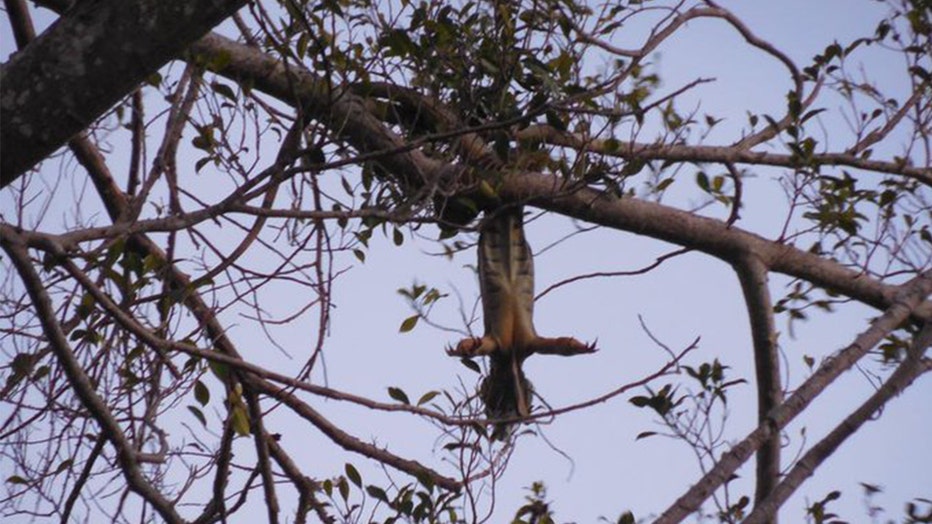Cold-stunned iguanas are actually falling from South Florida trees
Cold-stunned iguana in Virginia Key (Erik Blake)
MIAMI, Fla. - The National Weather Service routinely warns people about falling rain, snow and hail, but temperatures are dropping so low in South Florida the forecasters warned residents about falling iguanas.
On Tuesday, the NWS in Miami actually issued an alert about the possibility for falling iguanas -- and it happened. Jack Fullerton in West Palm Beach captured an image of a cold-stunned iguana hanging from a tree.

Image of what appears to be a cold-stunned iguana hanging from a tree in West Palm Beach. (Jack Fullerton)
Eric Blake with the National Hurricane Center said his wife captured an image of a cold-stunned iguana Wednesday morning at Virginia Key in Miami.
"Verification of the @NWSMiami iguana warning! That boy ain’t going nowhere... young one couldn’t take it (might be dead)," he wrote on Twitter, showing the image of the iguana.
The low temperatures stun the invasive reptiles, but the iguanas won't necessarily die. That means many will wake up as temperatures rise Wednesday.
On Wednesday morning, the NWS said, "Verified the iguana warning and the wind chill advisory! Definitely not your average day in South Florida this morning. No records broken, however. The coldest temperatures for Jan 22 was back in 1985! Miami had a low of 30 and Fort Lauderdale had a low of 29."
Iguanas aren't dangerous or aggressive to humans, but they damage seawalls, sidewalks, landscape foliage and can dig lengthy tunnels. The males can grow to at least 5 feet long and weigh nearly 20 pounds.
Female iguanas can lay nearly 80 eggs a year, and South Florida's warm climate is perfect for the prehistoric-looking animals. Iguanas are native to Central America, tropical parts of South America and some Caribbean islands.
Iguanas are allowed to be kept as pets in Florida but are not protected by any law except anti-cruelty to animals. They've been in South Florida since the 1960s, but their numbers have increased dramatically in recent years.
The Associated Press contributed to this report.

